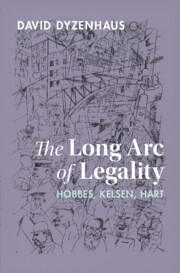
- Cited by 2
-
Cited byCrossref Citations
This Book has been cited by the following publications. This list is generated based on data provided by Crossref.
García Jaramillo, Santiago 2022. Ni formalismo, ni activismo: realismo político en el análisis del uso de la doctrina de las reformas constitucionales inconstitucionales. Díkaion, Vol. 31, Issue. 1, p. 61.
Edelstein, Dan and Straumann, Benjamin 2023. On the liberties of the ancients: licentiousness, equal rights, and the rule of law. History of European Ideas, Vol. 49, Issue. 6, p. 1037.
- Publisher:
- Cambridge University Press
- Online publication date:
- January 2022
- Print publication year:
- 2022
- Online ISBN:
- 9781009049054
- Subjects:
- Law, Philosophy, Jurisprudence, Political Philosophy




